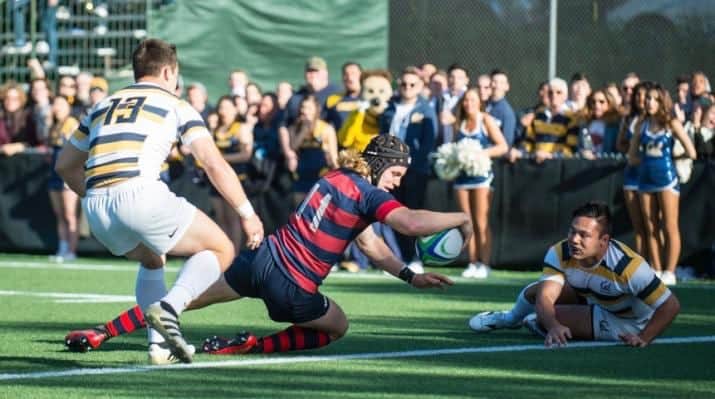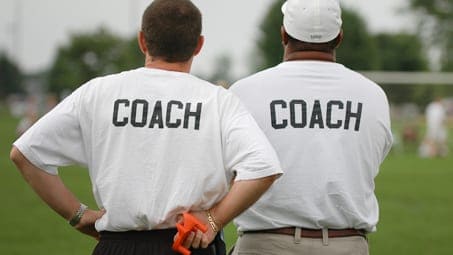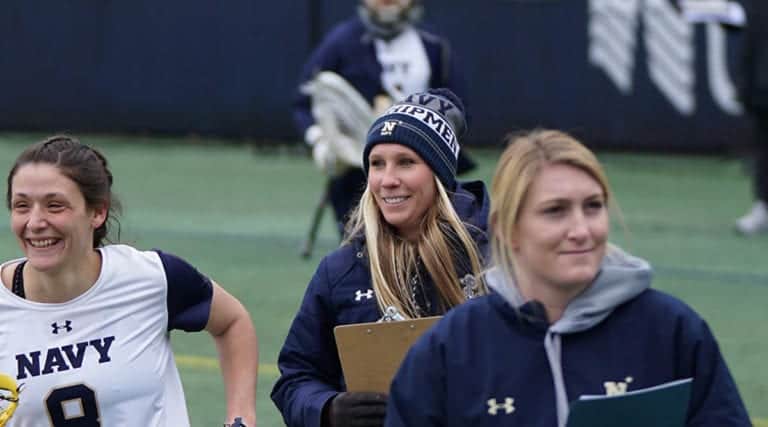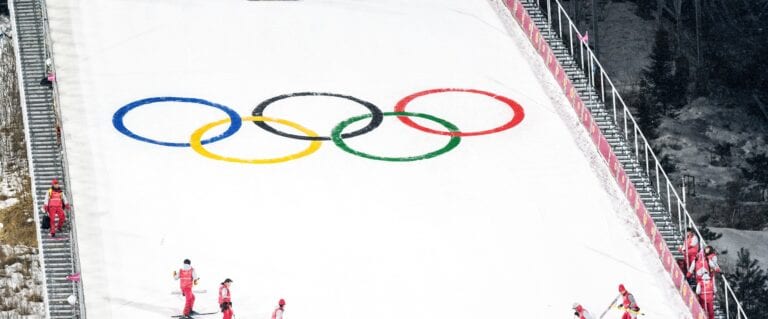Google ranks the top 10 attributes of good managers, we relate this to coaching
By Mim Haigh, Sports Writer – Athlete Assessments
Google, the #1 search engine in the world, ranked the top 10 attributes common to its best managers. We found that those behaviors run parallel to characteristics displayed by the most successful leaders in sport. Google’s findings support our knowledge that the best in the world reach that rank because of their expertise in people management, not just technology, equipment or physical capabilities.
In this article we recap Google’s top 10 tips, along with an interpretation of each finding and its relevance to leadership in sport by Bo Hanson, 3 x Olympic Medalist, 4 x Olympian and Athlete Assessments’, Senior Consultant. We’ve also included some stats on Google’s growth and success to give the people management facts some context.

But first, a bit of background. Google, the “keeper of our collective intelligence”, wasn’t always around. There is a start date! In 1998, when the company began, Google was processing 10,000 search enquiries per day; by comparison, just eight years later or two Olympiads, it was processing those 10,000 search enquiries in one second. And in 2018, it processes some 70,000 search enquiries every second. In athletic terms, that’s a phenomenal rate of improvement.
Google dominates the market to the point that the company name has become a verb. ‘Google it’ is one of the most commonly used phrases in every household, it’s our household physician, expert witness and the ultimate arbitrator when it comes to settling disputes of fact. To be specific 74% of fixed devices use Google as their search engine of choice and 90% of mobile devices use Google, leaving their competition just 10% of the market.
Considering Google’s market dominance, rate of improvement and sustained commitment to innovation, we thought that there was plenty to learn by translating the findings into sport. Here’s what Google found out about effective managers over a decade in a research initiative that it code named ‘Project Oxygen’.
The best manager
1. Is a Coach
They don’t solve every problem for their team as soon as it arises, rather they use these problems as teaching moments. They guide and share insights at the right time, letting their team gain valuable experience along the way.
Bo Hanson says, “in sport, better coaches know the value of effective questioning to help their athletes to problem solve and become better decision makers.”
2. Empowers the team and does not micromanage
Google confirmed the widely known truism that everybody hates a micromanager. In contrast, they found that a good team leader gives their people enough freedom to explore new ideas, experiment, and develop their own working style.
At this point it’s worth noting Google’s statistics that 16-20% of all searches every day have never been searched before. This statistic quantifies our ability to think uniquely. It also shows just how important it is for leaders to ensure that their team have the tools and flexibility to solve problems and use their own capacity for innovation and creativity.
Hanson adds, “as in sport highly directive and autocratic coaching styles impact the trust an athlete feels their coach has in them. Allowing athletes involvement and ownership develops their engagement in the team’s performance.”

3. Creates an inclusive team environment, showing concern for success and well-being
Great managers make it a priority to build trust in their teams. In a team with high psychological safety, each team member feels safe to take risks. They’re confident that no one on the team will embarrass or punish anyone else for admitting a mistake, asking a question, or offering a new idea.
Hanson says, “athletes who feel this develop faster by trying new strategies and techniques. The only focus is learning and improvement.”
4. Is productive and results--orientated
The best managers make those around them better. They understand their team’s capability and know that their job is to motivate and ensure everyone realizes their potential.
Hanson says, “in sport, measurement of results and the process to achieve those results is critical. Creating an environment of accountability and implementing systems to track results is fundamental to success.”
5. Is a good communicator – listens and shares information
Great managers are great listeners. Listening facilitates understanding. They also share what they can, because they realize transparency is beneficial for the team as a whole. They share sincere and specific praise, early and often. They also give the kind of feedback which enables growth making sure to frame it in a way that is constructive and easy to learn from.
Hanson says, “better sport coaches use listening to notice differences in how their athletes take feedback based on their unique make up. This tailored feedback approach helps coaches to communicate and build improved relationships with their athletes.”
6. Supports career development and discusses performance
Great managers are invested in their people. They provide career path options, realizing not everyone wants to follow the same road. They don’t hold their people back for personal gain. Rather, they support team members and help them to reach their goals.
“The key here is coaches who know their athlete’s “Big Reason Why”. This means understanding different motives each athlete has and how to use these motives to keep them moving toward their goals. Effective coaches know the challenge of aligning goals, standards, and each team member’s expectations. They constantly communicate this vision and ensure each athlete has their own sense of involvement, ownership and accountability in achieving it”, says Hanson.

7. Has a clear vision/strategy for the team
Great managers know where they’re going, but they make sure the whole team knows, too.
They are also careful to communicate “scope,” realistic expectations as to what specific actions are needed to execute a strategy, and each team member’s role in the delivery of the plan.
“Coaches who talk about the big picture, team’s purpose and goals for the season are able to keep players sustained focus.”
8. Has key technical skills to help advise the team
Great bosses understand a job well and are skilled at the work they oversee. When an effective manager is brought into a new department, they take time in the beginning to familiarize themselves with their people’s everyday work and challenges. This earns them the respect of their team.
Hanson says, “coaches differ in this area at times and do not always have high level tech expertise in every aspect of the game. However, better coaches source specialists with these areas and never pretend they are something they are not, nor do they pretend to know everything.”
9. Collaborates across [the company]
Great managers have the ability to see the big picture, and work for the good of a company as a whole as opposed to operating as a single unit and running their team with an “us versus them” mentality, competing against other teams within the company
“This is the same for coaches who involve and build relationships with all staff across the organization and the importance of including these people in feeling part of the team”, said Hanson.
10. Is a strong decision maker
Great managers take the lead. They make the tough decisions, and make sure everyone understands the reasons behind those decisions.
Hanson points out that coaches are the same. They need to make performance decisions based on real time stats and data. The better coaches then transparently relay these stats to the players so they can also understand their position in the depth chart of the team and how to improve.
And, just to reinforce how important it is to get the ‘people side’ of endeavors right, Google found that employees don’t leave jobs, they leave managers.
Suggested Articles
As we all know, our personality impacts our behavior and as such has a direct impact on our coaching style. However, unlike personality, which is relatively stable, a coach’s style is a preferred pattern of behavior and as such it can be changed or adapted depending on the situation. Most of all though, a coach’s style can be changed or adapted if they are aware of their style preference and what style will give them the results they need.
Chris McDonell graduated Saint Mary’s College of California with a B.A. in Politics and a minor in Spanish, but when it came to the interview process for a career in California’s Police Force, Chris’s superiors and interviewers thought one of his greatest strengths was his self-knowledge.
Leadership can be a complicated topic. There are literally thousands of well-meaning books and even more articles dedicated to demystifying what leadership is and how to be an effective leader. We know there are different ways to lead and many examples of varying styles and philosophies of leadership. Knowing how to be a leader can be confusing because even though new models of leadership are spoken about, at the same time, we see more traditional styles being enacted within politics, business and sport. To say it is confusing is an understatement.
There is interesting research, based on a Gallup survey of reasons for people leaving their jobs, which shows nearly 75% of people decided to quit because of their boss or the managerial working environment, and only 35.4% of Americans felt engaged in their workplace. If you think about it, this creates a massive and unnecessary cost to businesses, especially when you consider the cause and the fact that these numbers are fixable.
By Bo Hanson - 4x Olympian, Coaching Consultant & Director of Athlete AssessmentsSome do this extremely well, others do it poorly and many don’t do it at all. Yet performance reviews, for anyone, are one of…
After reading ‘How Full is Your Bucket’ by Tom Rath and Donald O. Clifton Ph.D., I read another of Rath’s books titled ‘Strengths Based Leadership’. An important chapter of this book is all about why people follow leaders. For so long, leadership research has focused on asking leaders what they do. But with this focus of research, there is a very obvious point overlooked: You are a Leader only if others follow you.
In recent years, more attention has focused on the impact of the coach-athlete relationship on an athlete’s performance. Research from the 2008 Canadian Olympic Study showed that coach-athlete relationships significantly impact athlete performance.












